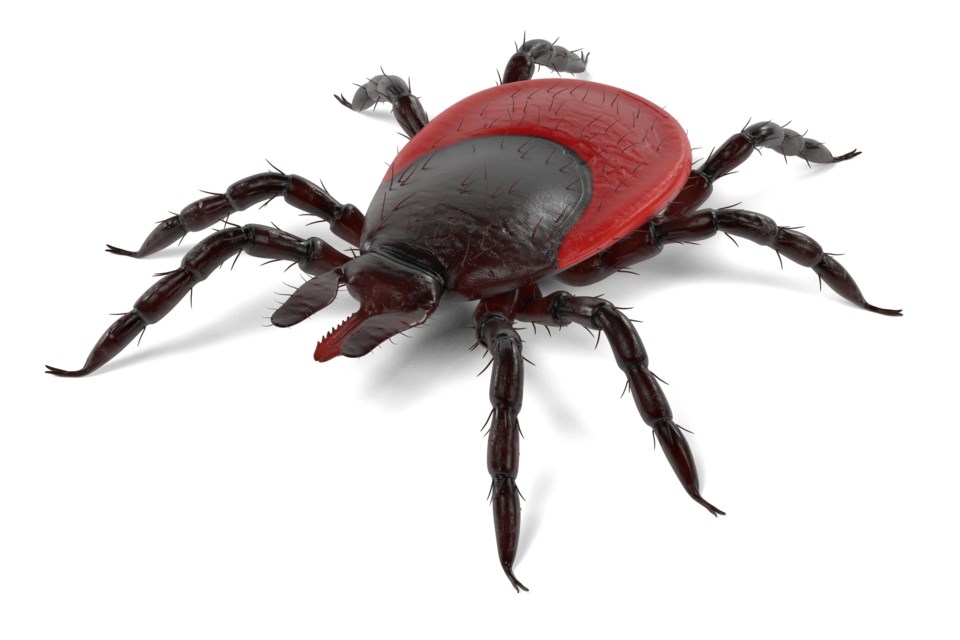THUNDER BAY — For the first time since mandatory reporting by local doctors was imposed, a Thunder Bay resident has been confirmed to be suffering from Lyme disease.
The disease can be passed on when an infected blacklegged tick latches on to a human.
After the Ontario Ministry of Health designated Thunder Bay as a risk area last year, city doctors are required by law to report any cases where they treat patients with a specific symptom of Lyme disease–a large "bullseye" rash.
Another local doctor also diagnosed a patient who is believed to have acquired the disease after visiting the state of New York.
Officials at the Thunder Bay District Health Unit weren't surprised to learn about the locally-acquired case.
Anecdotally, in recent years at least a dozen people in the area have reported to their doctor with a large bullseye rash.
Ken Deacon, coordinator of the health unit's vector-borne disease program, says he's surprised only one case was disclosed in the past year under the mandatory requirement.
"I would have expected more. I did expect more. So maybe we're lucky or maybe other cases have gone undetected," Deacon said in an interview Monday.
The 2019 surveillance program around Thunder Bay brought in 76 blacklegged ticks, about 10 per cent of which were confirmed by lab tests to be carrying Lyme disease.
That's the second highest total since surveillance began in 2005.
Deacon believes the mild winter so far is an ominous sign for 2020.
He noted that when temperatures rise to just 4 C, ticks can become active, even with snow on the ground.
"I would say 2020 is going to be the highest number of ticks that we've ever acquired at the health unit."
In addition to actively searching for ticks in the coming year, the TBDHU will continue to accept ticks brought in by members of the public.
However, only ticks captured by TBDHU staff conducting surveillance in the field will be sent to a federal lab in Winnipeg for testing for Lyme disease.
Ticks presented by the public will be examined to confirm they are the blacklegged variety, but will not be submitted for testing.
Deacon said the National Microbiology Laboratory has been "overwhelmed" with tick submissions from Ontario, and has had to change its policy for testing.
